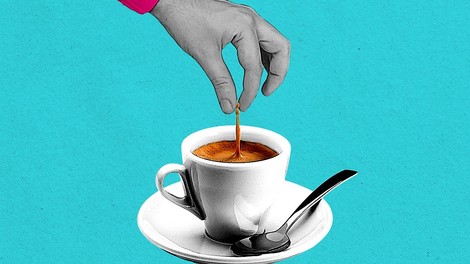Your podcast discovery platform
Curious minds select the most fascinating podcasts from around the world. Discover hand-piqd audio recommendations on your favorite topics.

piqer for: Boom and bust Deep Dives Doing Good Climate and Environment Technology and society Global finds
Chhavi Sachdev runs Sonologue and is India's second most experienced podcaster, having started putting out podcasts on her own and for clients like the Blue Frog in 2008... long before Serial, leading her mother to tell other people "I don't know what she does. Something to do with radio on the Web."
Over the last 10 years, she has developed and launched several podcasts that are successfully running, as well as produced the LSDcast - India's definitive podcast about love, sex, and dating, and Tall Tales Takeaway -- bite size true stories, told live.
She also conducts workshops on DIY podcasting, audio editing, and consults for organizations that need a little handholding in the audio format.
To pay the bills, Chhavi is a freelance multimedia journalist and producer covering science, health, development, sustainability, and women's issues extensively. She has co-hosted episodes for BBC's World Hacks and CrowdScience and she's a frequent presenter on PRI's The World, BBC's Health Check and several Deutsche Welle programs.
She listens to podcasts while exercising, doing chores, and also when she's felled by migraines.
Kicking caffeine - the buzz on decaf coffee and what it entails (for us and the environment)
As someone who loves coffee but gets heart palpitations with too much caffeine, I listened to this podcast with great interest -- and highly recommend it to everyone who cares to understand why decaf coffee is even a thing.
Through this episode, we hear from not only coffee makers (including the scions of the Lavazza family, with a very humourous bit about which members of their family do consume decaffeinated coffee ... and their age!) but also scientists who explain what caffeine does to your body. I learned that caffeine is absorbed into the blood stream, breaking the blood-brain barrier within two minutes. How's that for a really quick buzz? And we heard from scientists about what the process of extracting caffeine from the coffee bean entails. I was abashed to learn it's actually quite energy intensive, definitely not a very clean eco-footprint here, BUT there's hope, because every single bit of the residue finds a use and a home, so that's a silver lining. Finally, a little brain teaser! What if there were a way to modify the coffee plant so that some beans were grown without the caffeine naturally? Meanwhile, I'll continue drinking decaf after noon, and take heart that someone has explained the whole idea behind decaffeination for the layperson, from bean to brew, and I'll just point people who argue with me or judge me for it to this podcast! Cheers!
